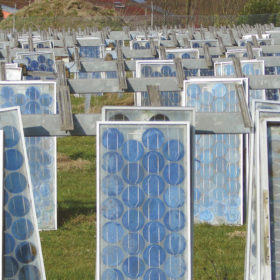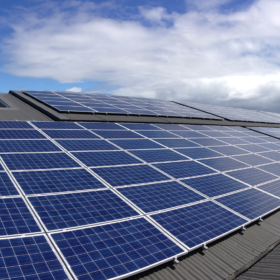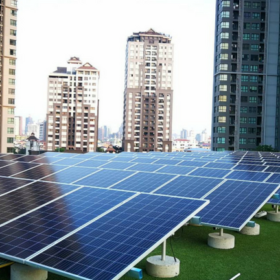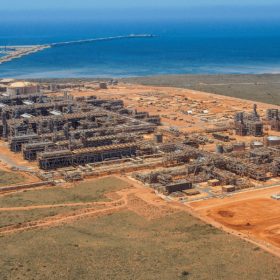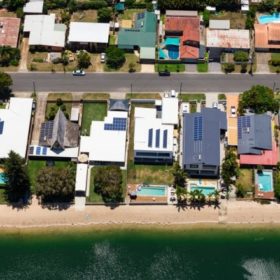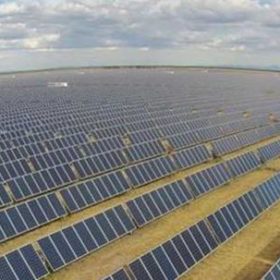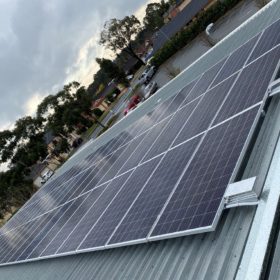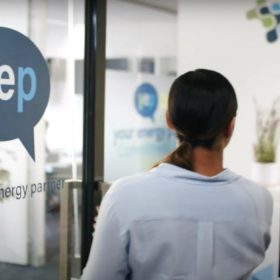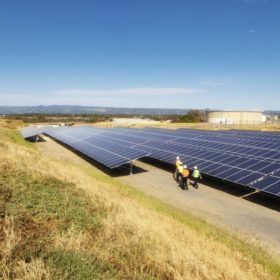Recycling PV panels: Why can’t we hit 100%?
In February, non-profit EU solar panel recycling body PV Cycle announced it had collected 5,000 tons of modules in France, of which 94.7% could be recycled. A reader asked us about the remaining 5.3% and here, PV Cycle’s communications manager, Bertrand Lempkowicz, responds.
Epho installs 100 solar systems in 100 days as Aldi Australia commits to 100% renewables
German discount supermarket chain Aldi has become the first Australian supermarket to commit to 100% renewable electricity by the end of 2021. To achieve this goal, Aldi’s longtime solar partner Epho Commercial Solar has refined its processes, managing to install 100 solar systems atop Aldi sites in 100 days.
Power Ledger and BCPG team up to launch SE Asian REC marketplace
Western Australian tech startup Power Ledger and Thai renewable energy company BCPG are expanding their partnership with the creation of a Renewable Energy Certificate marketplace for SE Asia on Power Ledger’s peer-to-peer blockchain platform.
Meet Dan Sturrock, Aussie dad championing solar in our schools
Last month, Australian Parents for Climate Action’s Solar our Schools campaign published an Open Letter to Prime Minister Scott Morrison calling for solar and energy storage investment at every school and early childhood centre Australia-wide as part of the Covid-19 economic recovery. Today, pv magazine Australia sits down with Solar our Schools ‘Champion’ Dan Sturrock, a renewable industry professional leading the charge for solar uptake at his kids’ school in Sydney’s inner west.
4 reasons why a gas-led economic recovery is a terrible, naïve idea
Australia’s leading scientists today sent an open letter to Chief Scientist Alan Finkel, speaking out against his support for natural gas.
How a digital solar toolkit and localised solutions can drive economic recovery
Such is the Global Village effect that the more globalised we are the more localised we become. The impacts of a global pandemic have choked industries and driven us into self-isolation, but at the same time, we are seeing an acceleration in the ingenuity of sales efficiency in the solar industry and a realisation of the necessity of self-generation. Tie this up with a shift to local government action on renewables and sustainability and the global recovery from Covid-19 is very much a local affair.
NSW Government recycling trials to seed a circular solar economy
Where do old solar panels go to die? Sending them to landfill makes a mockery of their green beginnings, and imposes a new burden on our already stressed environment. The New South Wales Government intends to get ahead of this important end game with funding to develop viable models for solar system recycling.
Sydney councils are doubling their solar generation
Blacktown City Council and Inner West Council are not wasting any time when it comes to meeting their carbon-neutrality and solar uptake goals. Both councils are currently in the process of doubling their current solar capacity in single swoops.
How solar matchmaking is making a splash on social media
Your Energy Partner is a solar broker that matches clients and solar retailers around Australia. The company, only launched in May 2019, is rising rapidly, partly thanks to its attitude to social media which encourages young first home buyers. YEP sat down with pv magazine Australia for a Q&A.
SA Water’s 12 MW solar install will have Happy Valley living up to its name
SA Water’s great solar splash of 2020 continues with the completion of one installation on Eyre Peninsula and the beginning of another, much larger installation, at the Happy Valley Reservoir.
